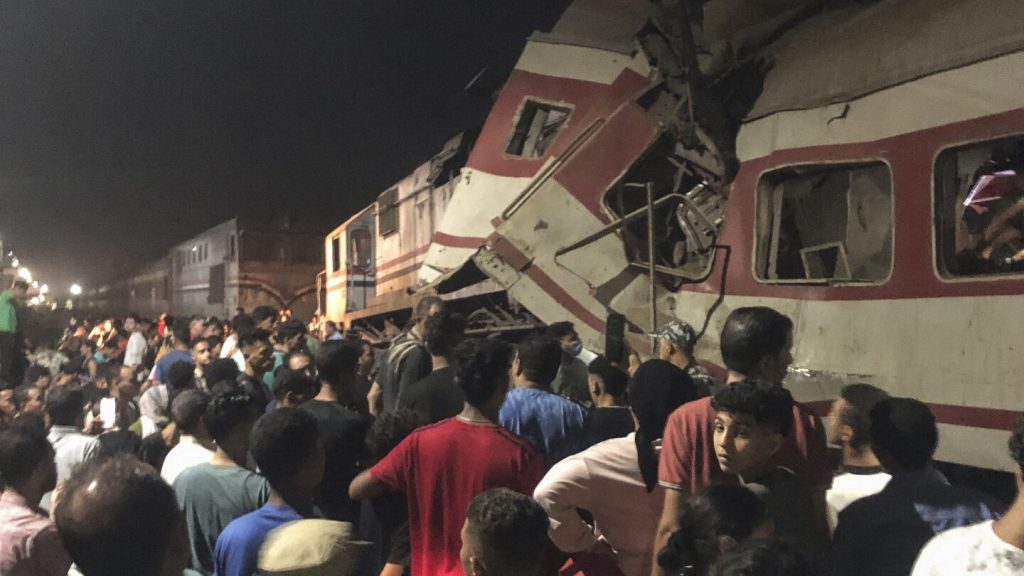The collision between two passenger trains in Egypt’s Nile Delta resulted in the deaths of at least three people, including two children, with 40 others sustaining injuries. The crash occurred in the city of Zagazig, the capital of Sharqiya province, and highlighted the ongoing issues faced by Egypt’s aging railway system. Train derailments and crashes are common in Egypt, where mismanagement has plagued the railway network. The government has made efforts in recent years to improve the system, with President Abdel Fattah el-Sissi announcing the need for significant financial investment to overhaul the neglected rail network.
Video footage from the scene of the collision showed a train car severely damaged by the impact, surrounded by onlookers. Rescuers were seen attempting to assist the injured passengers, with men trying to lift them through the windows of a passenger car. This incident comes on the heels of another train crash in the Mediterranean province of Alexandria just last month, where two individuals lost their lives after a train collided with a truck crossing the tracks. These tragedies serve as a stark reminder of the dangers faced by commuters using Egypt’s railway system.
The Egyptian government has acknowledged the urgent need for improvements in the country’s railway infrastructure, with substantial funding required to address the longstanding issues. President el-Sissi’s pledge of 250 billion Egyptian pounds, equivalent to $8.13 billion, demonstrates the scale of investment needed to modernize and enhance the rail network. Inadequate maintenance, outdated equipment, and poor management have contributed to the frequent accidents and incidents that occur on Egypt’s railways, impacting the safety and lives of passengers.
Efforts to enhance railway safety and efficiency have been ongoing, with initiatives aimed at upgrading infrastructure, implementing new technologies, and improving operational procedures. The collision in Zagazig serves as a tragic reminder of the urgent need for these reforms to be accelerated and prioritized. The loss of lives, including children, in preventable accidents underscores the consequences of the neglect and deficiencies in Egypt’s railway system. Authorities have a responsibility to ensure the safety of passengers and to address the systemic issues that have long plagued the country’s rail network.
In the aftermath of the collision, emergency responders and medical personnel worked swiftly to attend to the injured and transport them to hospitals for treatment. The incident has prompted calls for accountability and a thorough investigation into the circumstances that led to the crash. Questions have been raised about the effectiveness of existing safety measures and the enforcement of regulations within the railway sector. As Egypt mourns the lives lost in this tragic event, discussions around railway safety and the need for comprehensive reforms have gained renewed urgency. It remains to be seen what actions will be taken to prevent similar accidents and improve the overall safety of the country’s railway system.


